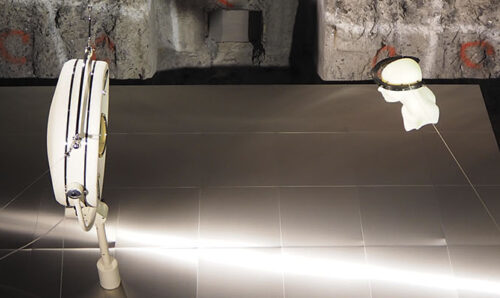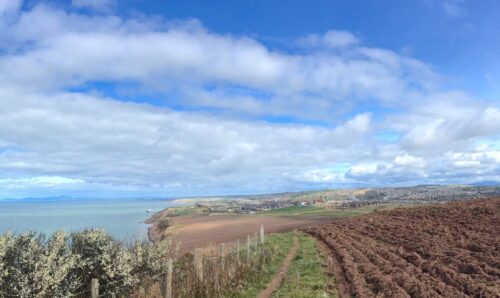Ethnography and energy
Blog 16 February 2018
Author: Petra Tjitske Kalshoven, Dalton Research Fellow, School of Social Sciences, The University of Manchester
Based at the Dalton Nuclear Institute’s Cumbrian Facility, I have recently begun fieldwork for an ethnographic project on nuclear decommissioning at Sellafield in West Cumbria. Well before I became an anthropologist, in between my M.A. in Classics and my Ph.D. in Cultural Anthropology, I followed a six-year graduate career path with the Royal Dutch Shell in the Netherlands, a top player in the oil and gas world. I have always been quite intrigued by energy industries as expressions of the human endeavour to harness natural forces, through technology and through specific conceptions of what constitutes proper, and properly managed, science and technology, delivering the power to make things move.
Energy, from the ancient Greek energeia, contains the root for ‘work’ (ergon). It is about putting things to work, constituting a call to business. It is not surprising that this is an alluring theme for anthropologists to explore, given our interest in the social fabric that underlies, and overlies, worlds propelled and connected by human attempts to set things in motion. Life revolves around energy, and social life revolves around harnessing energy. American anthropologist Leslie White even took energy as his central concept in developing a neo-evolutionary perspective on the development of human cultures, arguing that cultures progress in step with their success in increasing the amount of energy generated per capita or in putting it to work more efficiently. Writing in the 1940s, he manifested a firm optimism in science and technology. His rather ethnocentric belief in progress, and in particular his mapping of societies along a hierarchical schema with technological achievement as its measure, were considered deeply problematic by fellow-anthropologists already in his own time. What remains of great interest to social scientists, however, is to understand how social relations are made, shaped, articulated, threatened, and instrumentalised in highly politicised global, national, and local contexts of energy-making.
When White was developing his ideas on the harnessing of energy, nuclear scientists perfected the production of plutonium for the atomic bomb. Only later did their interest shift to its by-product, the energy generated by atomic fission that could be harnessed to produce electricity. The world’s first commercial nuclear power station, Calder Hall, was built in 1946 at what came to be known as Sellafield and operated until 2003. Other power stations came on line, and were taken out of production; today, electricity is no longer produced at Sellafield. The site’s reprocessing plants, which take spent fuel from decommissioned plants to separate plutonium and uranium from waste, will have ceased operations in 2020. Work will continue, on decommissioning of the facilities and the daunting job of clean-up of radioactive waste, for an estimated 100+ years. So Sellafield keeps being put to work—but no longer, at least not right now, as a player in the energy business.
Embarking on the fieldwork project at and around Sellafield, where I will pay particular attention to the role of social values and attitudes in processes of transformation in the context of decommissioning, resonates with my previous work experience with Shell in various ways. Not only do the oil and nuclear industries share a focus on cutting edge technologies; important and controversial roles in energy and job markets; and a profound impact on landscapes and ecologies—both industries also, for quite different reasons, face uncertain futures. Now that I have relocated to West Cumbria where Sellafield overlooks the Irish Sea, its magnificent sunsets cannot but remind me of the concept I was supposed to avoid studiously in recruitment talks for Shell: the spectre of a ‘sunset industry’. My first impressions from brief encounters with West Cumbrians are coloured by precisely such concerns—and by expressions of hope that the site may be selected for the construction of new nuclear facilities, leading it back into the energy game.
About Petra Tjitske Kalshoven
Petra is a Dalton Research Fellow based in the School of Social Sciences at The University of Manchester where she was previously a Lecturer in Social Anthropology. With The Beam, she pursues her interest in human expertise and the skilled and persuasive ways in which people seek to engage specific materials and landscapes. Read more.
Dalton Cumbrian FacilityEthnographyPetra Tjitske KalshovenSellafieldThe University of Manchester




